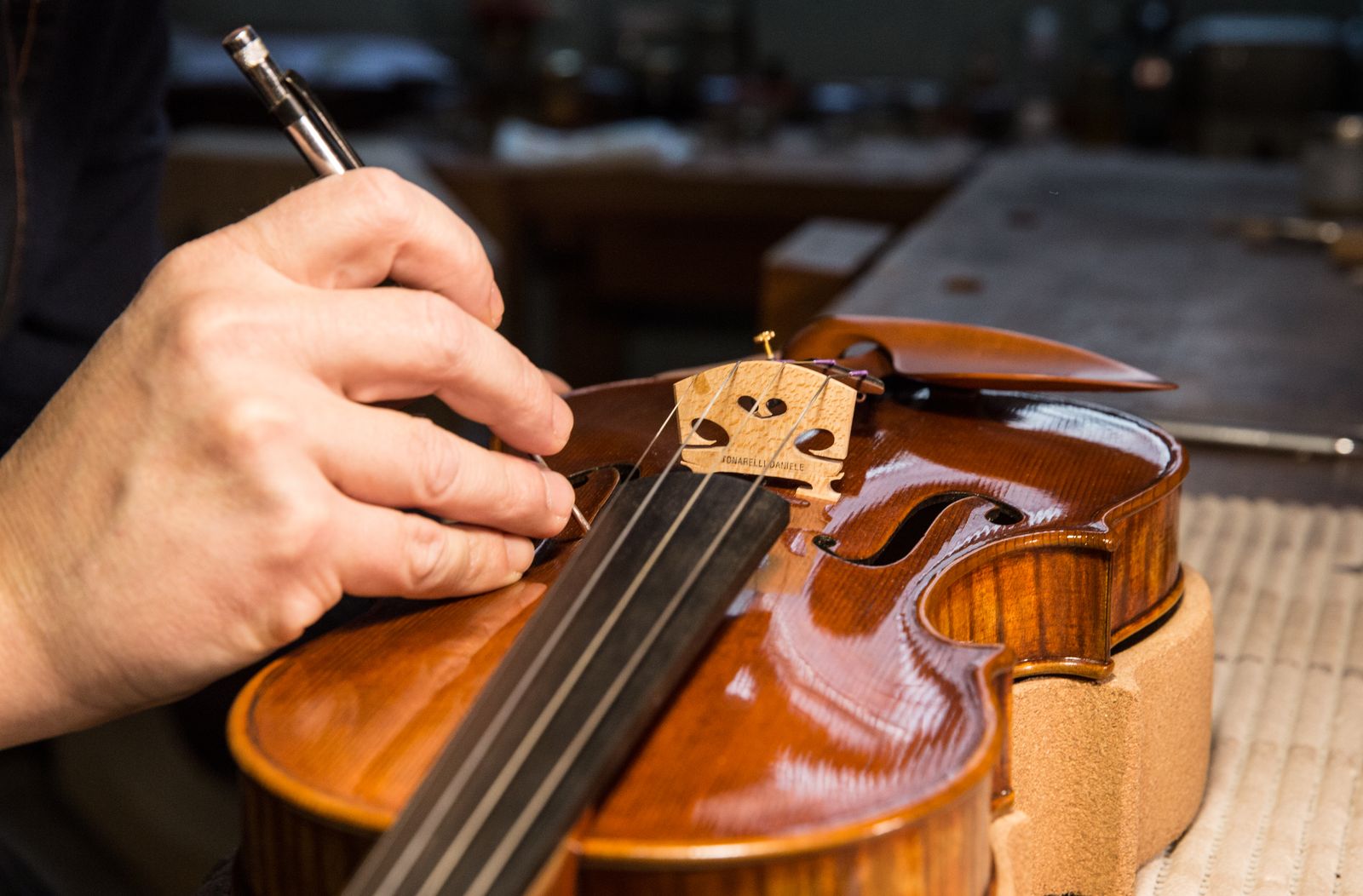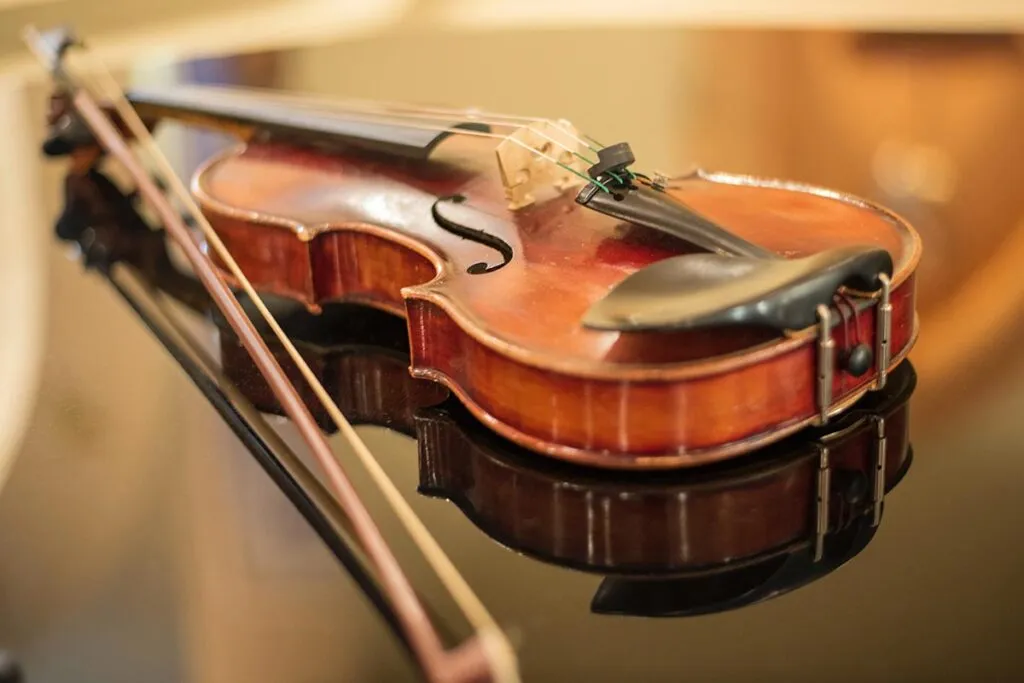Blog
“How to Maintain and Care for Your Musical Instrument”
A musical instrument is an investment in both time and money. Whether you’re a beginner or a seasoned musician, regular maintenance and proper care are essential to keep your instrument in optimal playing condition. Proper upkeep not only extends the life of your instrument but also ensures that you continue to produce the best possible sound. Here’s a guide on how to care for and maintain different types of musical instruments, from strings to brass, to woodwinds.
1. General Tips for All Instruments
Before diving into specifics, here are some general tips that apply to virtually every musical instrument:
Keep It Clean
Dirt, sweat, and oils from your hands can accumulate on your instrument, affecting both its appearance and performance. Clean your instrument regularly to remove dust, fingerprints, and residue.
Store Properly
Avoid leaving your instrument in extreme conditions, whether it’s too hot, too cold, or too humid. Store your instrument in a safe case or stand to avoid accidental damage and environmental harm. For example, a wooden instrument should not be exposed to drastic temperature changes, which can cause warping.
Regular Tuning and Adjustments
Make sure to regularly tune your instrument and check for any parts that may be out of alignment or require adjustments, such as strings or pads.
2. Caring for String Instruments (Guitar, Violin, Cello, etc.)
String instruments are delicate and require regular attention to ensure they produce the best sound possible. Here’s how to maintain these popular instruments:

Clean the Body and Strings
For guitars, violins, and other string instruments, always wipe down the body after use to remove dust, sweat, and oil buildup. For violins, using a soft cloth is recommended to avoid damaging the varnish. For guitars, you can use a special instrument cleaner to help preserve the finish. Always clean the strings after every play, as this will prolong their life.
Change the Strings Regularly
Strings lose their tonal quality over time. Guitarists, violinists, and cellists should change strings based on how frequently the instrument is played. Guitar strings, for example, should be replaced every few months or when they begin to sound dull or become difficult to tune.
Check the Bridge and Tuning Pegs
The bridge of string instruments can shift over time, which may affect sound quality and playability. Periodically check and adjust the tuning pegs to ensure they are tight and functioning properly.
Humidity Control
String instruments, especially those made of wood, are sensitive to humidity. Consider using a humidity control device in your case, particularly for violins, cellos, and guitars. Keeping your instrument at a consistent humidity level will help prevent cracking or warping.
3. Caring for Wind Instruments (Flute, Clarinet, Saxophone, etc.)
Wind instruments have delicate parts that require proper cleaning and maintenance to ensure they perform well. Here’s how to take care of common wind instruments:
Clean the Mouthpiece
After each session, wipe down the mouthpiece of your instrument with a soft cloth. This will remove moisture and prevent bacteria from building up, ensuring better hygiene and sound quality.
Use a Cleaning Rod for Flutes
For flutes and similar instruments, use a cleaning rod and cloth to remove moisture from the inside of the instrument. This helps avoid rust and corrosion, particularly in metal instruments like flutes and saxophones.
Regularly Check Pads and Keys
On instruments like clarinets and saxophones, the pads that seal the tone holes are prone to wear over time. Periodically check them for any cracks or leaks. If you notice issues with the pads, consider taking your instrument to a professional for maintenance.
Oil the Mechanisms
For instruments like the saxophone, lubrication of moving parts such as key springs and joints is essential. Use a specific type of oil designed for wind instruments to keep everything functioning smoothly.
4. Caring for Brass Instruments (Trumpet, Trombone, etc.)
Brass instruments, known for their rich and powerful sound, require a bit more attention due to their intricate valves and slides. Here’s how to keep them in top condition:
Clean the Exterior Regularly
Brass instruments can tarnish over time, so wipe them down after each use to prevent buildup of oils and dirt. Use a specialized cleaning cloth for brass to maintain their shine.
Oil the Valves and Slides
Brass instruments use valves and slides that need to be kept lubricated. Use valve oil for trumpet or cornet valves, and slide grease for trombone slides. Regular lubrication ensures that these parts move smoothly and prevent damage.
Clean the Mouthpiece
Like with other wind instruments, it’s important to clean the mouthpiece regularly. Use a brush and warm, soapy water to keep it free of debris and bacteria. Dry it thoroughly before use.
Desludge the Tubing
Brass instruments collect moisture and debris inside the tubing, which can affect sound quality. Use a snake brush (a long, flexible brush designed for cleaning instrument tubing) to clean the inside of the horn every few weeks or after heavy use.
5. Caring for Percussion Instruments (Drums, Cajón, etc.)
Percussion instruments, while often more durable than others, still require maintenance to ensure that they produce the best possible sound and stay in working order.
Change Drumheads
For drums, the drumhead (the top membrane) needs to be replaced periodically. The frequency depends on how often you play, but generally, you should replace it every 6–12 months for optimal sound. Keep an eye on any nicks or damage to the head that may impact the sound.
Clean the Shells and Hardware
Clean your drum shells regularly to prevent dirt from accumulating and dulling the finish. Wipe the hardware (lugs, rims, etc.) with a cloth to remove moisture and grime.
Tune Your Drums
Regular tuning is essential for percussion instruments. If you’re using a drum kit, check the tension of each drumhead and adjust as necessary to maintain proper pitch.
Maintain the Cajón
For the cajón, keep the surface clean and avoid exposing it to excessive moisture, which can warp the wood. If you play it regularly, consider adjusting the internal snare mechanism to ensure the best possible sound.
6. Caring for Electronic Instruments (Electric Guitar, Keyboard, etc.)
Electronic instruments like electric guitars and keyboards require care to ensure their electronics continue to work properly, as well as their physical parts.
Keep Your Cables and Connectors Clean

Dust and grime can build up on the connectors, so it’s important to regularly check and clean them. Use compressed air or a soft cloth to clean the jack and plugs.
Change the Battery (If Applicable)
For electronic instruments that run on batteries, it’s important to change them regularly to avoid performance issues or leaks. Many electric instruments come with rechargeable batteries, so make sure to maintain these as per the manufacturer’s instructions.
Store Properly
When not in use, always store your electric instruments in a safe case or protective covering. Avoid exposing them to extreme temperatures or humidity, as this can damage the electronic components or wiring.
7. Tips for Specialized Instruments (Harmonica, Accordion, etc.)
Some instruments, like the harmonica and accordion, require unique care.
Harmonica:
Keep your harmonica clean by wiping it after each use to prevent buildup of saliva or moisture. For more thorough cleaning, disassemble and soak the reed plates in water and use a brush to remove debris.
Accordion:
Accordions are delicate and should be kept in a protective case. Regularly check the bellows for leaks and ensure the reeds are in good condition. Clean the exterior regularly to maintain its appearance and prevent dust accumulation.
Conclusion
Caring for your musical instrument is essential for both its longevity and performance. By following these simple maintenance tips, you can ensure your instrument stays in top shape and continues to produce beautiful music. Remember, each instrument is different, and it’s important to consult the manufacturer’s guidelines or a professional if you’re unsure about any aspect of your instrument’s care. Whether you’re a seasoned musician or just starting out, proper maintenance is key to a long-lasting and fulfilling musical journey.


